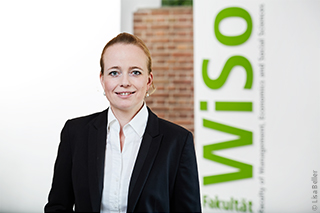There can be many reasons for starting and completing a degree program. Together with Laura Ehrmantraut (University of Bonn) and Renske Stans (Erasmus University Rotterdam), WiSo Professor Pia Pinger has examined what monetary and nonmonetary returns young people expect from their studies and a degree. In particular, she has distinguished between the expected signaling effect of a degree certificate and the human capital acquired while studying.
The results indicate that the perceived return to higher education is considerable. However, the focus lies more on obtaining the degree than on learning new skills. The degree certificate is more important than knowledge, one could put it bluntly. The recurrent complaints of professors about the "limited willingness" of their students to study material beyond exam-relevant subjects thus seem to be justified. At the same time, the high expected signaling effect of a degree certificate provides a justification for the fact that enrolment figures continue to be high and are still growing.
Furthermore, Pia Pinger, member of the Cluster of Excellence ECONtribute: Markets & Public Policy, points to a policy implication: The fact that returns from education are perceived as substantial suggests that tuition fees are likely to have little impact on student numbers. The study results could thus explain why a temporary introduction of tuition fees in Germany has had, and is likely to have in the future, little impact on the number of students enrolled.
Regarding possible drop-outs, Pia Pinger and her colleagues found that the perceived returns were no suitable indicators to predict the subjective likelihood of dropping out. This in turn implied that policies to combat dropout should focus on measures aimed at reducing the considerable psychological costs of studying, rather than focusing on the perception of future returns to graduation.
